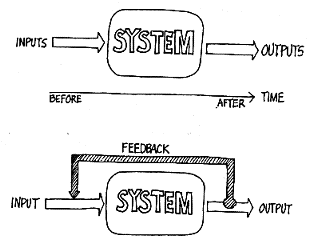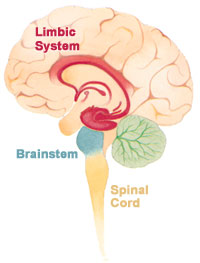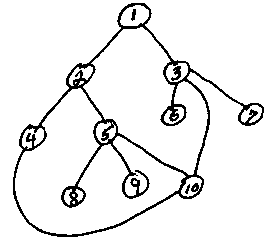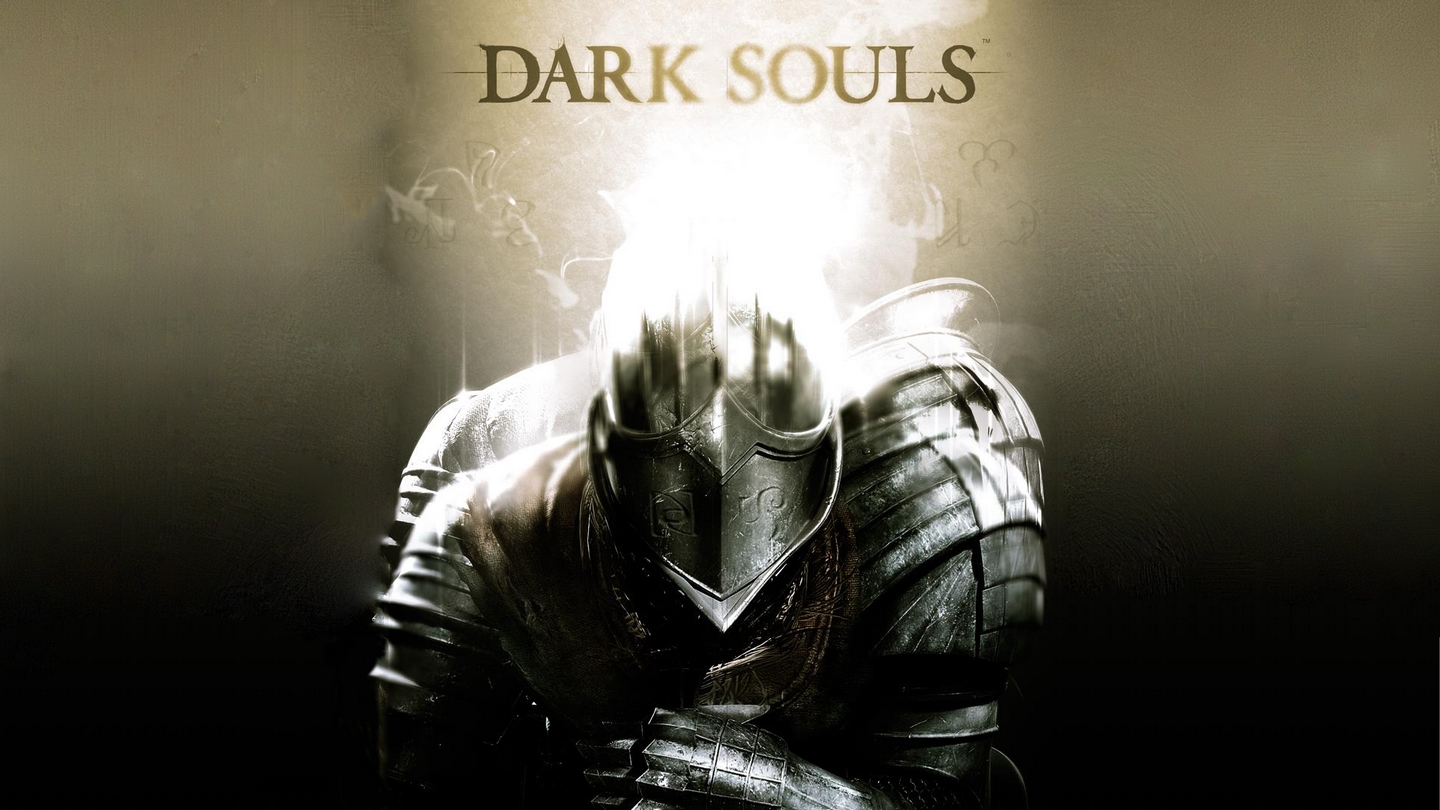So, we hear this phrase all the time.. "I am thinking"or "I am thinking, if I should go to this place/ buy this coat/ eat at that restaurant and so on and so forth. We are thinking, even when we think that we are not thinking.. Wow that was good. We cannot switch off our brains for a moment, it is always doing something.
So, the question naturally arises, what is THINKING? What are we thinking about and most importantly why are we thinking ? Now, if one defines thinking as a a process which effect our decisions? Probably to an inquisitive mind the question might come, What kind of decisions we tend to make. If our thinking can influence our decisions and our actions, our lives are always deterministic. And if it is deterministic, can we make a model of our decision making process ?
As it turns out, our decisions are influenced by external factors, factors which we cannot control and thus the expression "Oh! I didn't think, it will turn out like this! ", "Oh! I thought this will work, but damn it doesn't." Thus, making all the UNCERTAINTY around us come to life, and for all intent and purposes makes the world around us interesting. If you THINK about it, how it will be if everything and everyone's actions are deterministic. Well it will kind of suck!
Ok I feel I am going round and round the topic rather than coming to the actual point. What I am trying to ask/ say is that if it is somehow possible to model our thinking our thought patters, which influence a certain decision and use the outcome of the decision as a feedback loop to model our next decision.
Talking about feedback loops, the upper schematic shows a system (a world), in which everyone is just doing stuff, without thinking (also known as an open-loop system). That is not very good I guess :), everyone doing stuff without thinking, the world will go to chaos. Now the second system is important, which I was talking about before FEEDBACK, that I think is everything, you can call it the thought process (well I will say it post-action thoughts), reflection upon your actions or whatever may suit your fancy.
Now, it is well known in neuroscience (I would like to quote, as much as I know or based on the information gathered), this feedback mechanisms are generally channeled through our limbic system which also is the reward system of the brain. It is the pleasure center of the brain, which rewards us, when we solve a complicated problem, also the pleasure center, which plays a role in sexual arousal or eating choclates :). (excerpt form wikipedia).
That is all to put the context about the feedback system of the brain, how we make decisions. I feel at this point it is pretty obvious, that we like to do things, which rewards us greatly, in either ways direct or indirect.
Now coming back to the title of the blog, are we really thinking ? Well, I discussed this point with few people and it seemed I kind of convinced them on my view point. But, now I am looking for more. Is it so possible that we can model all the thought processes of the brain, everything it think, every POSSIBLE decision, it is going to take. Some research, is going on in EPFL, Switzerland regrading modelling all the neurons and synapses in the brain, with one huge computer, commonly known as the BLUE BRAIN Project.
What I think, is that our brain is always COMPUTING probabilities, down to the smallest thing as talking to a stranger on the street or taking a shower or eating an ice-cream. It is all the outcome of a complex probabilistic computation, which happens in seconds and we do not even know it.
ICE-CREAM Shop:
For example, suppose you have not tasted an particular flavor of ice cream and your brain just have the prior information that you love ice-cream. Now, in an ice cream store, how likely it is that you are drawn to your favorite chocolate/ vanilla flavor. You are going to get it, but suddenly another signal in your brain kicks in, saying, "Dude! try something new. There are lots of flavour. You always take the same one." Now, the lady over the counter asks, "Which one? " and what do you say , "Wait! I am THINKING". Aha! what you are doing right now is computing the odds of taking the same ice cream and be satisfied, for which your brain has a high prior knowledge, than to spending 2.50 euros to try something new, which might not suit your taste buds. So, in effect you are doing a quick calculation for a most favorable outcome. In this particular scenario, this decision making gets harder, if you have a limited amount of money. One make choose to avoid risk and take the same flavor of ice cream which he always takes or act otherwise, if someone is a risk taker.
This is a simple case, but I am sure it can be extended to more complicated scenarios. Now, how the more complicated scenarios (say marrying someone) are different from a regular day to day decisions.
One can look at it as a graph model. Since more often than not, one particular decision will affect directly or indirectly your subsequent actions. The longer the graph, or probably the more interconnected nodes it has the more complicated the decision will be. So, ineffect, we can probably give a numerical value to the complication of a certain matter. For example, in case of marriage or choosing your career, the decision is going to effect so many areas of your life, thus adding more and more nodes, compared to eating an ice-cream which might just be a small graph. Thus, the problems can be separated and probably the brain looks for local information on the other nodes to make this decisions. Thus, we hear the expression, "Oh! it felt right at that moment." and each nodes carry the probabilistic outcome of the decisions made on the previous node. So, in fact it is all a conditional probability problem.
Now, the graphs may be close or open, depending whether the brain can re-evaluate the decisions or re do certain things. Thus, eating an ice cream is an open graph, but if you catch cold, after eating the delicious ice-cream you may re-think your decision next time. I have reasons to believe that more often than not the graphs are closed.
Addictions:
There are some other issues with the above arguments, for example, if doing certain things rewards us then by above logic we should be doing it again and again, then why do we loose interests in certain things, if we do it over a long period of time and start looking for something new, something EXCITING. Well, I don't know, how to fit that in this model, but probably a valid argument may be, if we like doing something we have a SPIKE of excitement, a reward, a tendency to go towards it in search of that spike. but too many spike in too frequent intervals, makes the signal flat and thus nothing more happens and we loose interest. Thus, bringing the increased addiction to drugs like cocaine or marijuana, the users keep looking for that spike. Probably, it is easy to explain with conditional probability models. If we iterate over a loops the same process, if the probability decreases in case of same outcome, and things like that. (I am sorry about the last line, I didn't do the math at this point, it is just a THOUGHT, may be if someone has an idea, you can let me know.)
Surprises:
This can be probably related with the previous paragraph. You may have heard people saying, "Oh! I love surprises!", why one will like surprise. It is not something that they thought is going to happen, neither they planned to do it. And I am sorry to say my friends, "No! you do not like surprises. But you only like surprises which are in favor of you, which give you that spike." Suppose, someone is walking down the street and get hit by a car. That is a surprise too, will he like that... I don't think so. Suppose, he finds a 20 dollar bill, How about that? Ofcourse, it will be fun to get money lying in the ground.
I believe, the graphs for the surprises can not be modeled in the regular decision making graphs, for obvious reason that it is not your decision.
Also, one quick trivia, that human beings are the only creatures, who are aware of their demise, which I think is the biggest prior in all our decisions. The decision, which makes survival possible is more often than nor the best one. Interested readers, can read "The Selfish Gene" by Richard Dawkins, which explain the effects of altruism and other similar things on survival.
Well, I can go on and on about it, but I think you get my point. We are all programs and this is a matrix. Everything can be computed and modeled. The question that remains, How can we model them? How can we have a probabilistic model of the workings of a brain. How the decision weights be assigned to certain outcomes based on their probable consequences and most importantly, Are our brains smart enough to compute themselves ?
So, the question naturally arises, what is THINKING? What are we thinking about and most importantly why are we thinking ? Now, if one defines thinking as a a process which effect our decisions? Probably to an inquisitive mind the question might come, What kind of decisions we tend to make. If our thinking can influence our decisions and our actions, our lives are always deterministic. And if it is deterministic, can we make a model of our decision making process ?
As it turns out, our decisions are influenced by external factors, factors which we cannot control and thus the expression "Oh! I didn't think, it will turn out like this! ", "Oh! I thought this will work, but damn it doesn't." Thus, making all the UNCERTAINTY around us come to life, and for all intent and purposes makes the world around us interesting. If you THINK about it, how it will be if everything and everyone's actions are deterministic. Well it will kind of suck!
Ok I feel I am going round and round the topic rather than coming to the actual point. What I am trying to ask/ say is that if it is somehow possible to model our thinking our thought patters, which influence a certain decision and use the outcome of the decision as a feedback loop to model our next decision.
 |
| Feedback Systems (Source: http://pespmc1.vub.ac.be) |
 |
| Limbic System (Source: Wikipedia) |
That is all to put the context about the feedback system of the brain, how we make decisions. I feel at this point it is pretty obvious, that we like to do things, which rewards us greatly, in either ways direct or indirect.
Now coming back to the title of the blog, are we really thinking ? Well, I discussed this point with few people and it seemed I kind of convinced them on my view point. But, now I am looking for more. Is it so possible that we can model all the thought processes of the brain, everything it think, every POSSIBLE decision, it is going to take. Some research, is going on in EPFL, Switzerland regrading modelling all the neurons and synapses in the brain, with one huge computer, commonly known as the BLUE BRAIN Project.
What I think, is that our brain is always COMPUTING probabilities, down to the smallest thing as talking to a stranger on the street or taking a shower or eating an ice-cream. It is all the outcome of a complex probabilistic computation, which happens in seconds and we do not even know it.
ICE-CREAM Shop:
For example, suppose you have not tasted an particular flavor of ice cream and your brain just have the prior information that you love ice-cream. Now, in an ice cream store, how likely it is that you are drawn to your favorite chocolate/ vanilla flavor. You are going to get it, but suddenly another signal in your brain kicks in, saying, "Dude! try something new. There are lots of flavour. You always take the same one." Now, the lady over the counter asks, "Which one? " and what do you say , "Wait! I am THINKING". Aha! what you are doing right now is computing the odds of taking the same ice cream and be satisfied, for which your brain has a high prior knowledge, than to spending 2.50 euros to try something new, which might not suit your taste buds. So, in effect you are doing a quick calculation for a most favorable outcome. In this particular scenario, this decision making gets harder, if you have a limited amount of money. One make choose to avoid risk and take the same flavor of ice cream which he always takes or act otherwise, if someone is a risk taker.
This is a simple case, but I am sure it can be extended to more complicated scenarios. Now, how the more complicated scenarios (say marrying someone) are different from a regular day to day decisions.
 |
| Graph Model Source: http://www.delphiforfun.org |
Now, the graphs may be close or open, depending whether the brain can re-evaluate the decisions or re do certain things. Thus, eating an ice cream is an open graph, but if you catch cold, after eating the delicious ice-cream you may re-think your decision next time. I have reasons to believe that more often than not the graphs are closed.
Addictions:
There are some other issues with the above arguments, for example, if doing certain things rewards us then by above logic we should be doing it again and again, then why do we loose interests in certain things, if we do it over a long period of time and start looking for something new, something EXCITING. Well, I don't know, how to fit that in this model, but probably a valid argument may be, if we like doing something we have a SPIKE of excitement, a reward, a tendency to go towards it in search of that spike. but too many spike in too frequent intervals, makes the signal flat and thus nothing more happens and we loose interest. Thus, bringing the increased addiction to drugs like cocaine or marijuana, the users keep looking for that spike. Probably, it is easy to explain with conditional probability models. If we iterate over a loops the same process, if the probability decreases in case of same outcome, and things like that. (I am sorry about the last line, I didn't do the math at this point, it is just a THOUGHT, may be if someone has an idea, you can let me know.)
Surprises:
This can be probably related with the previous paragraph. You may have heard people saying, "Oh! I love surprises!", why one will like surprise. It is not something that they thought is going to happen, neither they planned to do it. And I am sorry to say my friends, "No! you do not like surprises. But you only like surprises which are in favor of you, which give you that spike." Suppose, someone is walking down the street and get hit by a car. That is a surprise too, will he like that... I don't think so. Suppose, he finds a 20 dollar bill, How about that? Ofcourse, it will be fun to get money lying in the ground.
I believe, the graphs for the surprises can not be modeled in the regular decision making graphs, for obvious reason that it is not your decision.
Also, one quick trivia, that human beings are the only creatures, who are aware of their demise, which I think is the biggest prior in all our decisions. The decision, which makes survival possible is more often than nor the best one. Interested readers, can read "The Selfish Gene" by Richard Dawkins, which explain the effects of altruism and other similar things on survival.
Well, I can go on and on about it, but I think you get my point. We are all programs and this is a matrix. Everything can be computed and modeled. The question that remains, How can we model them? How can we have a probabilistic model of the workings of a brain. How the decision weights be assigned to certain outcomes based on their probable consequences and most importantly, Are our brains smart enough to compute themselves ?

